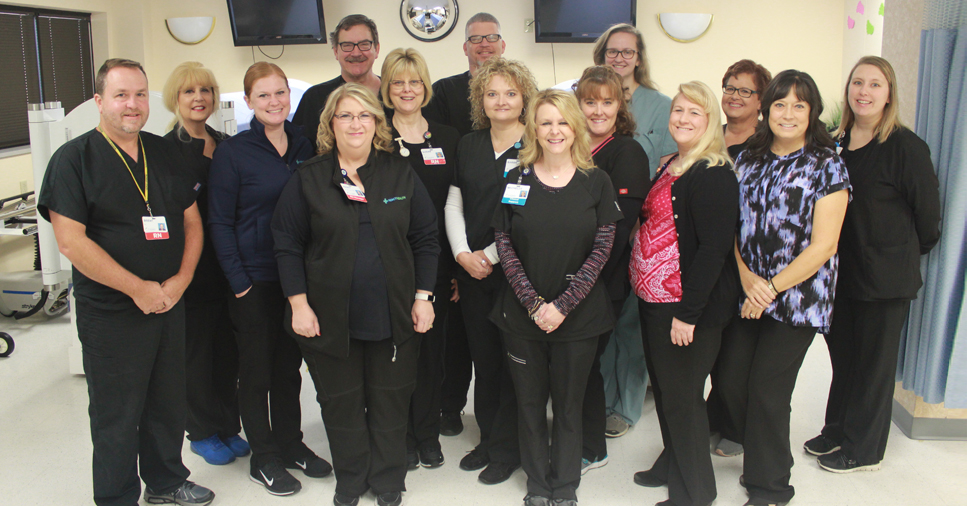When to seek wound care and try hyperbaric oxygen therapy
In celebration of Mercy Health – Paducah Wound Care and Hyperbaric Medicine’s 20-year anniversary, we’re sharing some of their most helpful wound care tips.
“With healing rates consistently above 90 percent, our patients have seen amazing results,” Mercy Health Physician Dr. Timothy Ranval said.
Dr. Ranval, a vascular surgeon, assisted in opening the Wound Care Center at Lourdes Hospital 20 years ago. Because of the growth experienced over the past 20 years, it now operates three locations on the Paducah Medical Campus. It’s also grown to include four providers: Dr. Ranval, Dr. Jason Banister, Dr. Lindsey Barnes-Lund, and Katherine Meekins, APRN; and two Certified Wound Care Nurses. The Wound Care Center began offering hyperbaric oxygen therapy in 2006.
What is hyperbaric oxygen therapy?
Wounds need oxygen to heal properly, but sometimes the oxygen you get from breathing regular air isn’t enough. Up to 10 percent of wounds don’t respond to conventional therapy. If appropriate, hyperbaric oxygen therapy (HBOT) may be used to treat your wound.
HBOT helps your body’s wound-healing capability work more efficiently. In the hyperbaric chamber, you breathe pure oxygen at higher-than-normal air pressure. This fills your blood with healing oxygen—15 to 20 times the normal amount—to support rapid repair of damaged tissue. As a result, more oxygen is absorbed into your bloodstream and carried to the injured tissue — helping wounds and infections heal faster and more completely. The treatment is safe and painless, and it’s often covered by Medicare and private health insurance.
When to seek wound care treatment
Using a variety of clinical treatments, therapies and support services, Mercy Health’s Wound Care Centers aid the healing process for people with wounds that resist other treatment. If you have a wound that hasn’t begun to heal in two weeks or isn’t completely healed in four weeks, you may be a candidate for specialized treatment. Patients treated successfully include those with:
- Diabetic ulcers
- Neuropathic ulcers
- Pressure ulcers
- Ischemic ulcers
- Venous insufficiency
- Traumatic wounds
- Surgical wounds
- Vasculitis
- Burns
- Peristomal skin irritations
- Other chronic, non-healing wounds
Mercy Health’s Wound Care Centers can give hope to people with chronic, non-healing wounds, offering state-of-the-art outpatient clinical wound care and hyperbaric medicine. Visit the Mercy Health website to learn more about wound care or to find a wound care doctor near you.
Fun Facts About Mercy Health – Paducah Wound Care and Hyperbaric Medicine:
- The Center has consistently seen, on average, 700 new patients a year.
- Patient satisfaction is over 94% for 2018.
- Earlier this year, the Center was named a 2017 Center of Distinction by Healogics, achieving outstanding clinical outcomes for 12 consecutive months, including patient satisfaction higher than 92 percent and a minimum healing rate of at least 91 percent within 30 median days to heal.






